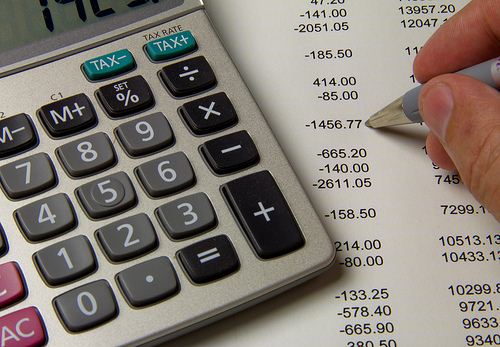Mention the word budget, and it’s easy to think of a miserable life eating baked beans for breakfast, lunch and tea, and wearing a woolly hat and gloves at home instead of switching the heating on. However, a good budget is designed to actually improve your quality of life, by helping you keep tabs on and managing the money you do have. If you take control of your money by setting out budget (and sticking to it!) then you’ll be able to streamline your finances, and sleep easier at night.
So read on for how to successfully create a budget.
Face your Demons
Quite often, we avoid doing budgets because we know that often our expenses exceed our income. But to take control of your finances, you really do need to look at the figures in black and white.
Work out your Income and Expenditure
It’s really important to write down all the money you have coming in and going out to create a successful budget. If you have money left over, then you channel this into saving. If your expenses are more than your income, then see if there is any way you can cut costs.

Refresh your Budget
Budgets are far better approached on a month by month basis to take into account changes in expenditure such as birthdays, Christmas or car bills. Take the time to create a fresh budget at the beginning of each month, so you can easily see what’s coming in and what’s going out.
Why Budgets Fail
To avoid falling at the first post, then you need to bear in mind why budgets fail. Here are the main reasons why.
- You’re underestimating your expenses. Although it’s tricky, you need to gather together bank statements and utility bills to work out exactly what you’re spending every month. You also need to add in everything you spend, even when they are irregular payments. If for example, you service your car irregularly, work out roughly how often you do it and then break the annual cost down into a monthly figure.
- If you’re not properly tracking your spending then it’s easy to go over budget. Use an app or carry a notebook and write it all down. You can then enter it into an online spreadsheet for assessment at the end of the month. Alternatively, there are some really useful online tools such as websites that track your spending from your bank account and break it down into categories. This will show you at glance where your money has gone.
- Budgets also fail when your income isn’t enough to cover your expenses. If this is the problem, then you need to cut costs and/or work out ways of increasing your income.
- Ignoring your budget is a sure route to failure. If you are constantly spending on items not on your budget, then all your hard work on those sums will be wasted.
Finally, if your budget doesn’t work out the first time, keep going. It can take a while to get used to budgeting, so don’t throw in the towel in without giving it a good go.
Harry Price lives on the south coast with his wife and 3 dogs. They all love ong costal walks, especially on a cold and windy day.



